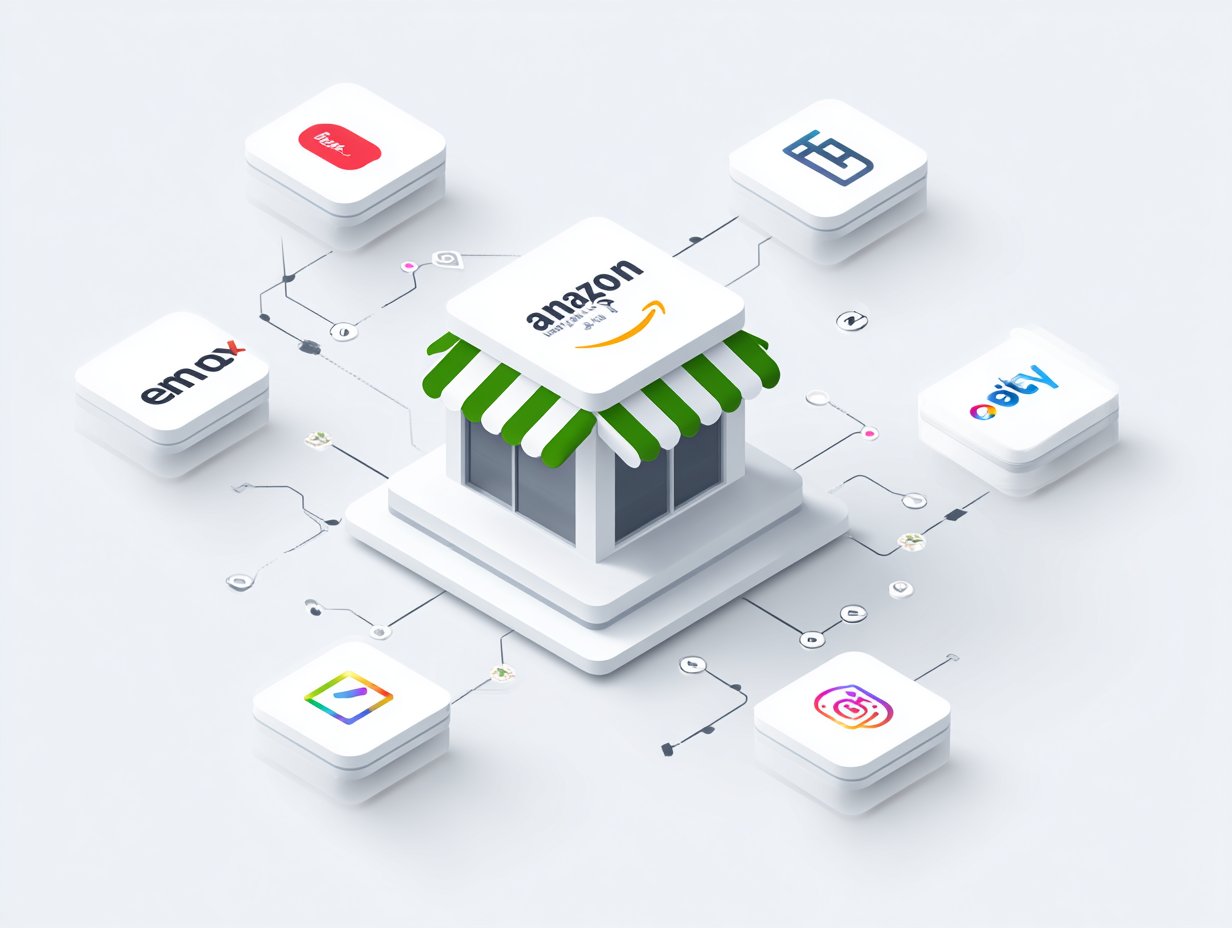Why Sell on Marketplaces?
In today’s fast-evolving ecommerce landscape, selling on online marketplaces has become a strategic imperative for brands and retailers aiming to scale quickly and efficiently. Marketplaces like Amazon, eBay, and Walmart offer unparalleled access to vast customer bases, streamlined operations, and powerful marketing tools. For ecommerce managers, marketing leads, and founders, understanding why selling on marketplaces is essential can unlock new growth opportunities and accelerate brand presence online. This article explores the key reasons to embrace marketplaces, providing strategic insights that reinforce Incubate Agency as your trusted partner in marketplace success.
The Strategic Value of Marketplaces for Ecommerce Growth
Selling on marketplaces is not just about adding another sales channel; it’s a strategic move that can transform how your brand reaches customers and drives revenue. Marketplaces provide a cost-effective, scalable platform that complements your existing ecommerce efforts and enhances your digital performance.
Marketplaces enable brands to tap into established consumer trust, vast audiences, and advanced fulfillment networks. They also offer valuable data and advertising capabilities that can inform and optimise your broader ecommerce strategy. Understanding these advantages helps ecommerce leaders make informed decisions about channel diversification and growth acceleration.
Fast Market Entry and Scalability
One of the biggest advantages of marketplaces is the speed at which you can launch and scale your products. Once approved as a seller, you can quickly upload your product catalog and start selling without the need for building a standalone ecommerce site or investing heavily in infrastructure.
Rapid onboarding reduces time-to-market.
Feed management tools streamline product data optimisation across multiple marketplaces.
Scalability is inherent—whether you have a handful of products or thousands, marketplaces can handle your inventory efficiently.
This agility allows brands to respond swiftly to market trends and consumer demand, creating promotional campaigns and adjusting inventory with minimal friction1.
Massive Customer Reach and Visibility
Marketplaces aggregate millions to billions of active shoppers monthly. Amazon, for example, boasts nearly 300 million active users globally, while platforms like eBay and Walmart Marketplace attract hundreds of millions more.
Access to a broad, diverse audience that might never find your standalone store.
Increased brand exposure through marketplace search and recommendation algorithms.
Opportunity to reach niche and mass-market consumers simultaneously.
This exposure is invaluable for brand awareness and customer acquisition, especially for emerging brands looking to build credibility and trust quickly23.
Operational Efficiency and Fulfillment Support
Marketplaces often provide integrated logistics and fulfillment solutions, such as Amazon’s Fulfillment by Amazon (FBA), which handle storage, packing, and shipping on your behalf.
Streamlined order processing and faster delivery times improve customer satisfaction.
Reduced operational complexity and overhead costs.
Enhanced returns management and customer service support.
Leveraging these services allows brands to focus on product development and marketing while ensuring a seamless customer experience13.
Key Benefits of Selling on Marketplaces
Marketplaces offer a range of tangible benefits that go beyond just sales volume. These advantages are crucial for ecommerce managers and founders seeking sustainable growth and competitive differentiation.
1. Increased Brand Visibility and Awareness
Marketplaces serve as discovery platforms where consumers browse and compare products. Selling on marketplaces gives your brand access to a wider audience and enhances visibility through:
Marketplace-driven marketing tools like sponsored ads and promotions.
Inclusion in marketplace search results and category listings.
Exposure to repeat customers loyal to marketplace ecosystems (e.g., Amazon Prime members).
Research shows that 61% of brands report increased access to larger customer bases through marketplaces, and 45% note improved brand exposure2.
2. Cost-Effective Customer Acquisition
Compared to building and driving traffic to a standalone ecommerce site, marketplaces offer a more affordable route to acquiring customers.
Benefit from the marketplace’s existing traffic and SEO authority.
Lower upfront marketing and advertising costs.
Ability to test new products with less financial risk.
Marketplaces also help reduce acquisition costs by leveraging their trusted reputation, which encourages consumer confidence and purchase intent3.
3. Access to Rich Consumer Data and Insights
Marketplaces provide sellers with detailed analytics on customer behaviour, search trends, and sales performance.
Use data to optimise product listings and pricing strategies.
Leverage advertising platforms like Amazon Advertising to target specific customer segments.
Gain insights into market demand and competitor activity.
This data-driven approach supports continuous improvement and smarter decision-making across your ecommerce operations3.
4. International Expansion with Minimal Effort
Many marketplaces operate globally, allowing brands to reach international customers without the complexities of setting up local operations.
Simplified cross-border selling with integrated currency conversion and shipping solutions.
Access to new markets with established consumer trust.
Opportunity to diversify revenue streams and reduce dependence on domestic markets.
This global reach is critical for brands aiming to scale rapidly and compete internationally3.
Challenges to Consider and How to Overcome Them
While marketplaces offer significant benefits, there are challenges that brands must navigate to succeed.
Competition and Pricing Pressure
Marketplaces are highly competitive environments where price wars can erode margins. To mitigate this:
Differentiate your brand through superior product quality and customer service.
Use marketplace advertising and promotions strategically.
Monitor competitor pricing and adjust dynamically.
Brand Control and Customer Relationship
Marketplaces control much of the customer experience, limiting direct interaction with buyers. To maintain brand equity:
Use branded packaging and inserts.
Encourage customers to engage with your brand on social media and your own website.
Collect customer data where possible within marketplace guidelines.
Operational Complexity
Managing multiple marketplaces can be complex. Incubate Agency specialises in streamlining marketplace management, integrating feed optimisation, inventory control, and performance tracking to maximise efficiency and sales13.
Why Partner with Incubate Agency for Marketplace Success?
With over 50 years of combined leadership experience, Incubate Agency offers tailored, transparent, and strategic support to help growth-focused brands and retailers scale online. Our expertise spans ecommerce marketplaces, digital performance strategy, and brand acceleration.
We provide end-to-end marketplace management, from onboarding to optimisation.
Our data-driven approach ensures your brand maximises visibility, conversion, and profitability.
We help you navigate marketplace complexities and leverage advanced marketing tools.
Learn more about our Amazon performance management and how we can accelerate your marketplace growth.
Conclusion
Selling on marketplaces is a powerful strategy for ecommerce growth. It offers rapid market entry, vast customer reach, operational efficiencies, and valuable data insights. While challenges exist, partnering with an experienced consultancy like Incubate Agency ensures you navigate these effectively and unlock your brand’s full potential.
Ready to scale your marketplace growth with a partner who gets it? Book your consultation now.


